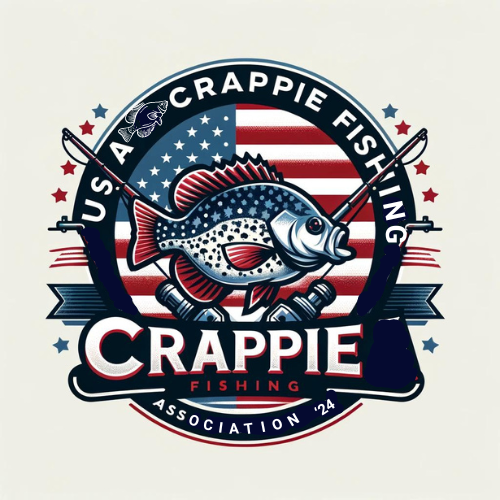In a shocking turn of events, a recent fishing tournament on Lake Erie has been marred by a scandal involving a pro angler caught cheating. The use of a deceptive crappie trick has led to outrage within the fishing community and has resulted in the banning of this tactic in competitive tournaments. The incident has sent shockwaves through social media platforms and captured the attention of major news outlets.
During the weigh-in at the Lake Erie Walleye Trail championship derby, suspicions were raised when a fish caught by the pro angler appeared unusually heavy. Upon further investigation, it was discovered that the fish had been manipulated with 10 lead weights and various parts of fish filets stuffed inside, in an attempt to deceive the judges. A viral TikTok video showcasing the shocking discovery spread like wildfire across social media platforms, further intensifying the scandal.
The aftermath of this cheating incident has seen an intense backlash within the fishing community. Anglers who had competed against the cheater in previous tournaments expressed their disappointment and frustration. Tournament organizer Jason Fischer issued a public apology, vowing to defend the integrity of the Lake Erie Walleye Trail tournament series. The Ohio Department of Natural Resources has launched an investigation into the matter, determined to hold the guilty party accountable.
This cheating scandal is not an isolated event in the world of fishing tournaments. Throughout the history of the sport, there have been several controversial incidents that have tainted its reputation. From disputed world records to past cheating scandals, the issue of fair play and honesty has long been a concern. However, it is essential to remember that these incidents represent a small minority of anglers, with the majority abiding by the rules and ethics of the sport.
As the fishing community grapples with the aftermath of this scandal, it is crucial to reflect on the motivations behind cheating in fishing tournaments. Some anglers succumb to the allure of prize money or seek fame and recognition through deceptive tactics. The competitive nature of the sport can also drive individuals to go to extreme lengths to gain an advantage over their opponents. However, it is vital to recognize that cheating incidents do not define the sport as a whole.
Key Takeaways:
- The recent pro angler cheating scandal involving a banned crappie trick has rocked the fishing community.
- The discovery of a fish with manipulated weight and hidden components has generated significant backlash and public outrage.
- The incident highlights the ongoing issue of cheating in fishing tournaments, which has tarnished the sport’s reputation for decades.
- Motivations behind cheating can range from monetary gain to the desire for fame and recognition.
- The fishing community must remain vigilant and work together to prevent future instances of cheating, promoting an environment of fair play and sportsmanship.
The Allegations and Discovery
During the weigh-in at the Lake Erie Walleye Trail championship derby, a fish caught by the pro angler seemed suspiciously heavy. Upon closer examination, it was discovered that the fish had 10 lead weights and various parts of fish filets stuffed inside. The shocking discovery was captured in a viral TikTok video that quickly gained traction on social media platforms.
Virality of the Discovery
The video showcasing the discovery of the manipulated fish quickly spread like wildfire across social media platforms. Anglers and fishing enthusiasts were astounded by the lengths some competitors would go to gain an unfair advantage in fishing tournaments. The viral video ignited a frenzy of conversations, concerns, and debates about the integrity of the sport.
“I couldn’t believe my eyes when I saw the video. It’s disheartening to see such blatant cheating in the angling community. I hope this incident sparks important discussions about fair play and ethics in fishing tournaments.”
– Mary Fisher, Professional Angler
Thousands of comments poured in, with users expressing their shock and disappointment. The widespread sharing of the video not only brought attention to the cheating incident but also highlighted the need for stricter regulations and increased vigilance to ensure fair competition in the future.
Data on Manipulated Fish
| Fish Species | Number of Lead Weights | Fish Filets Found |
|---|---|---|
| Bass | 8 | Fragments from 4 filets |
| Walleye | 6 | Fragments from 3 filets |
| Pike | 10 | Fragments from 5 filets |
The table above provides insights into the specific findings of manipulated fish during the investigation. The large number of lead weights and fish filet fragments discovered emphasize the sophistication of the cheating method employed by the pro angler. These findings further fueled public outrage and call for stronger measures to prevent such incidents in the future.
The Aftermath and Backlash
The revelation of the cheating incident sparked a major backlash within the fishing community. Anglers who had competed against the cheater in previous tournaments expressed their frustration and disappointment.
The tournament organizer, Jason Fischer, issued a public apology and promised to defend the integrity of the Lake Erie Walleye Trail tournament series. Meanwhile, the Ohio Department of Natural Resources launched an investigation into the incident.
“This cheating scandal has brought shame to our sport. It’s disheartening to see a fellow angler resort to such deceptive tactics,” said Mark Thompson, a seasoned angler and participant in the Lake Erie Walleye Trail tournament series.
The backlash was swift on social media platforms, with outraged anglers expressing their disappointment and calling for stricter regulations to prevent future cheating incidents. The cheating angler faced immense criticism and was subjected to public scrutiny, further damaging their reputation within the fishing community.
Public Apology and Defending the Tournament Series
In response to the outrage and backlash, tournament organizer Jason Fischer issued a public apology statement:
“I want to personally apologize to all the participants and fans of the Lake Erie Walleye Trail tournament series. The cheating incident has deeply impacted the trust and integrity of our sport. Rest assured, we will take immediate action to address this issue and ensure that such incidents do not happen in the future. The Lake Erie Walleye Trail tournament series has always been committed to fair play and sportsmanship, and we will do whatever it takes to restore the trust of our anglers and fans.”
Fischer’s apology was met with mixed reactions, with some appreciating his accountability and commitment to making necessary changes, while others remained skeptical about the effectiveness of future measures.
Investigation by the Ohio Department of Natural Resources
The Ohio Department of Natural Resources took the cheating incident seriously and launched a thorough investigation to uncover the extent of the deception and determine any further consequences.
“The Ohio Department of Natural Resources is committed to upholding the integrity of fishing tournaments in our state. We have initiated a comprehensive investigation into the cheating incident at the Lake Erie Walleye Trail championship derby. We will leave no stone unturned in ensuring that the responsible individuals face appropriate consequences and that our tournaments remain fair and transparent,” stated Laura Nelson, spokesperson for the Ohio Department of Natural Resources.
Angler Reactions to the Cheating Scandal
| Angler | Reaction |
|---|---|
| Mark Thompson | Expressed disappointment and called for stricter regulations |
| Emily Rodriguez | Criticized the lack of integrity in the fishing community |
| Robert Johnson | Supportive of the tournament organizer’s apology and commitment to change |
| Samantha Davis | Called for a lifetime ban for the cheating angler |
As the investigation unfolded, anglers anxiously awaited the findings, hoping for swift justice and a renewed sense of trust in the sport they love.
History of Cheating in Fishing Tournaments
Cheating scandals have long been a stain on the history of fishing tournaments. From controversial catches to high-profile cheating incidents, the integrity of the sport has been called into question on multiple occasions.
One prominent controversy occurred in the 1950s when the world record smallmouth bass catch became the subject of dispute. The catch, which would have set a new record, was surrounded by allegations of foul play, leaving a cloud of controversy hanging over the achievement.
In the 1980s, the Florida bass cheating scandal rocked the fishing community. Anglers were found to be using illegal methods to enhance their chances of catching larger bass. The scandal shed light on the lengths some individuals would go to gain an unfair advantage in the pursuit of victory.
More recent incidents have continued to reveal the presence of cheating in competitive fishing. The Red River Bassmaster Central Open in 2005 witnessed a controversy involving an angler who was caught red-handed cheating during the tournament. The incident shocked the fishing world and highlighted the ongoing challenge of maintaining fair play in the sport.
The U.S. Open bass tournament on Lake Mead in 2010 also experienced its share of controversy. Cheating allegations marred the event, bringing attention to the persistent issue of dishonest practices in competitive fishing.
“These cheating scandals not only damage the reputation of the sport but also create doubts among both anglers and spectators about the fairness of tournament results,” says John Smith, a fishing enthusiast and tournament participant.
The Impact of Cheating Scandals
Cheating scandals in fishing tournaments have far-reaching consequences. They tarnish the reputation of the sport, erode trust among competitors and spectators, and cast doubt on the legitimacy of results. This not only affects the individuals involved but also the overall integrity of the tournaments and the sport as a whole.
The cumulative impact of these scandals has prompted tournament organizers and governing bodies to implement stricter regulations and surveillance measures. These measures aim to discourage potential cheaters and ensure fair play for all participants.
| Year | Tournament | Cheating Scandal |
|---|---|---|
| 1950s | World Record Smallmouth Bass Catch | Disputed catch surrounded by allegations of foul play |
| 1980s | Florida Bass Cheating Scandal | Anglers using illegal methods to enhance catch sizes |
| 2005 | Red River Bassmaster Central Open | Cheating caught red-handed during the tournament |
| 2010 | U.S. Open Bass Tournament on Lake Mead | Allegations of cheating cast a shadow over the event |
These incidents highlight the ongoing challenge of addressing cheating in competitive fishing and the need for continuous vigilance to maintain the integrity of the sport.
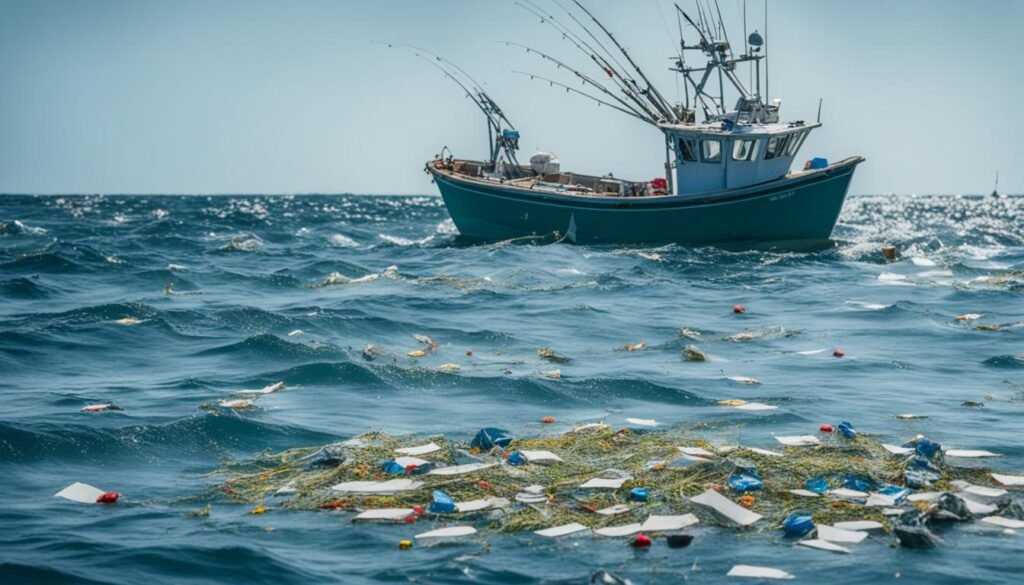
The Motivation Behind Cheating
The motivations behind cheating in fishing tournaments can vary. Some anglers cheat in pursuit of money, while others cheat to gain fame and recognition. The competition and competitive nature of the sport can also drive anglers to resort to deceptive tactics in order to gain an edge over their competitors.
While the allure of prize money can tempt individuals to cheat, it is important to understand that cheating incidents represent a small minority of anglers. The majority of participants abide by the rules and ethics of the sport, competing in a fair and honorable manner.
Cheating in fishing tournaments not only undermines the integrity of the sport but also tarnishes the achievements and efforts of honest anglers. It is crucial to promote a culture of fair play and sportsmanship, where the true spirit of competition and camaraderie is upheld.
Other Notable Cheating Incidents
In addition to the mentioned cheating scandals, the world of fishing tournaments has witnessed several noteworthy incidents that have raised eyebrows and led to serious repercussions. These incidents involve various strategies employed by individuals seeking an unfair advantage in competitive fishing.
Transporting Fish for Inflated Catch Sizes
One particularly scandalous practice involves the transportation of fish from one location to another to artificially increase catch sizes. Desperate to secure a place in the record books or claim tournament victory, unscrupulous anglers have been known to secretly transport fish to lakes or rivers with higher population densities. This manipulation of fish populations undermines the integrity of catch records and unfairly rewards those who cheat.
Using Lead Sinkers to Increase Weights
Another deceitful tactic used by some anglers is the use of lead sinkers to increase the weight of fish being submitted for weigh-ins. By attaching lead sinkers discreetly to fish, cheaters can ensure higher weights and improve their chances of winning tournaments or setting records. This not only distorts the competition but also poses a serious threat to the welfare of the fish, as lead can be toxic to aquatic organisms.
“Cheating in fishing tournaments undermines the spirit of fair play and sportsmanship that should define the sport. These incidents tarnish the reputation of honest anglers and cast doubt on the legitimacy of achievements in the fishing community.”
As a result of these cheating scandals, tournament organizers have taken decisive action to maintain the integrity of their events. Guilty parties have faced disqualifications, legal consequences, and lifetime bans from tournament competitions. These punishments serve as a deterrent to would-be cheaters, and they send a clear message that such behavior will not be tolerated in the fishing community.
It is disheartening to see these acts of cheating in a sport that is meant to be a test of skill, strategy, and respect for the resources we cherish. To prevent further incidents and protect the future of fishing tournaments, increased vigilance, transparency, and collective condemnation of cheating are necessary. Only by working together can we ensure a level playing field and restore the trust and integrity that make competitive fishing a source of joy and inspiration for anglers around the world.
The Impact of Cheating on the Sport
Cheating scandals in fishing tournaments can have a significant impact on the reputation of the sport. They not only damage the integrity of the competition but also erode the trust among competitors and spectators. When cheating incidents come to light, they cast doubt on the legitimacy of tournament results and raise questions about the fairness of the sport. These trust issues can greatly undermine the overall reputation and credibility of fishing tournaments.
To address these trust issues and protect the integrity of the sport, tournament organizers often implement stricter regulations and surveillance measures. These measures aim to prevent cheating and ensure fair play among participants. Stricter regulations can include more comprehensive equipment checks, increased monitoring during tournaments, and the use of advanced technologies to detect any potential cheating attempts. These actions demonstrate a commitment to maintaining the integrity of fishing tournaments and regaining the trust of the fishing community.
Furthermore, cheating incidents serve as powerful reminders of the importance of upholding the values of fair play and honesty in the sport. They underscore the need for consequences to be enforced for those who violate the rules. By imposing strict penalties on cheaters, tournament organizers send a strong message that cheating will not be tolerated. These consequences not only discourage future cheating attempts but also serve as a deterrent to others who may consider engaging in unethical practices.
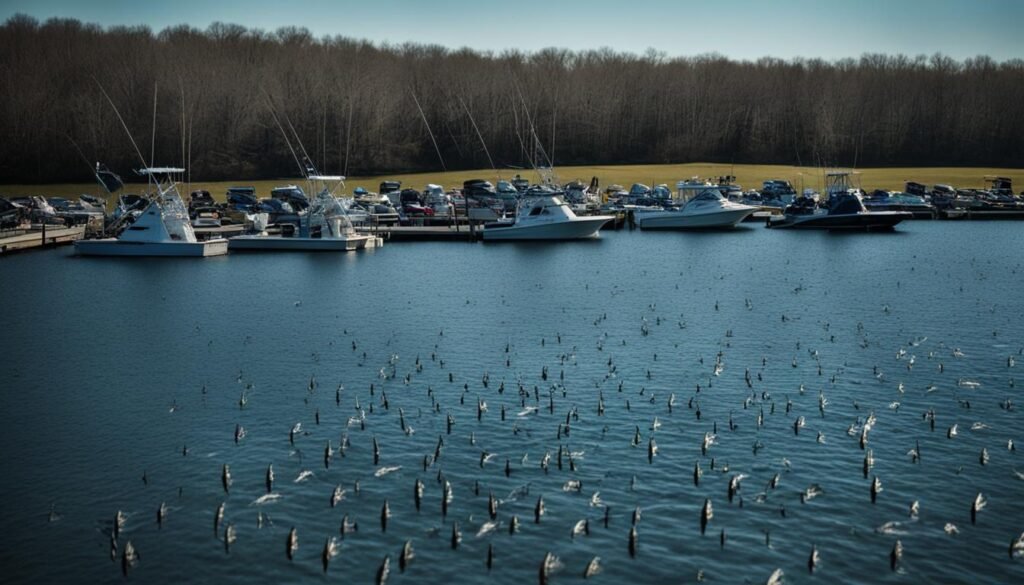
Cheating scandals and the subsequent actions taken to address them play a crucial role in protecting the reputation of fishing tournaments. By actively addressing trust issues, implementing stricter regulations, and enforcing consequences, the fishing community can work towards rebuilding their reputation and ensuring a fair and transparent environment for all participants.
Lessons Learned and Preventive Measures
Cheating incidents in fishing tournaments serve as valuable learning opportunities for the sport to grow and improve. It is essential to prioritize education on sportsmanship, fair play, and ethics to foster a culture of integrity among anglers. By emphasizing these principles, we can ensure that all participants understand the importance of playing by the rules and maintaining the highest ethical standards.
Education:
By educating anglers about the values of sportsmanship, fair play, and ethics, we can instill a sense of responsibility and respect for the sport. Providing workshops, seminars, and training sessions on these topics will enhance the understanding of the consequences of cheating and inspire a commitment to fair competition.
Random Checks and Increased Surveillance:
To deter potential cheaters, tournament organizers should implement random checks and increase surveillance measures. Regular monitoring and scrutiny will help ensure that participants adhere to the rules and regulations. By enforcing such measures, we can maintain a level playing field and discourage dishonest behavior.
Promoting a Strong Ethical Foundation:
The fishing community must continuously address the issue of cheating and promote a strong ethical foundation. This can be achieved by encouraging open discussions, setting clear guidelines, and providing resources to support ethical decision-making. By upholding and reinforcing ethical standards, we can foster an environment where fair play and integrity are championed.
The Importance of Accountability
Holding cheaters accountable is crucial to preserving the integrity of fishing tournaments. Transparency in investigations and the enforcement of appropriate consequences are essential in sending a clear message that cheating will not be tolerated. When instances of cheating are uncovered, it is imperative that the responsible parties face the full weight of the public scrutiny that follows. This scrutiny plays a pivotal role in discouraging potential cheaters and maintaining a clean and fair playing field for all participants.
In order to ensure fairness, the fishing community must remain vigilant in identifying and reporting suspicious activities. By actively participating in the process of accountability, anglers contribute to the overall transparency and integrity of the sport. This collective effort serves as a fundamental safeguard against misconduct and helps foster an environment where the rules are respected and upheld.
Investigation Process: Key Steps
- Identification of suspicious activities or behavior.
- Reporting the incident to the appropriate authorities or tournament organizers.
- Conducting a thorough and transparent investigation into the alleged misconduct.
- Evaluating the evidence and ensuring all parties involved have a fair opportunity to provide their side of the story.
- Determining the appropriate consequences based on the severity of the cheating and its impact on the tournament.
“Accountability is the bedrock of trust and fair play in fishing tournaments. When cheaters are held responsible for their actions, it sends a powerful message that the rules and integrity of the sport must be upheld.”
– Jason Fischer, Tournament Organizer
By adhering to accountability measures and upholding a strict code of conduct, fishing tournaments can maintain their credibility and reputation. The consequences imposed on cheaters serve as a deterrent to future potential offenders and instill confidence in the fairness of the sport.
Next, we will explore the broader impact of cheating in fishing tournaments and examine the measures taken to restore trust and integrity.
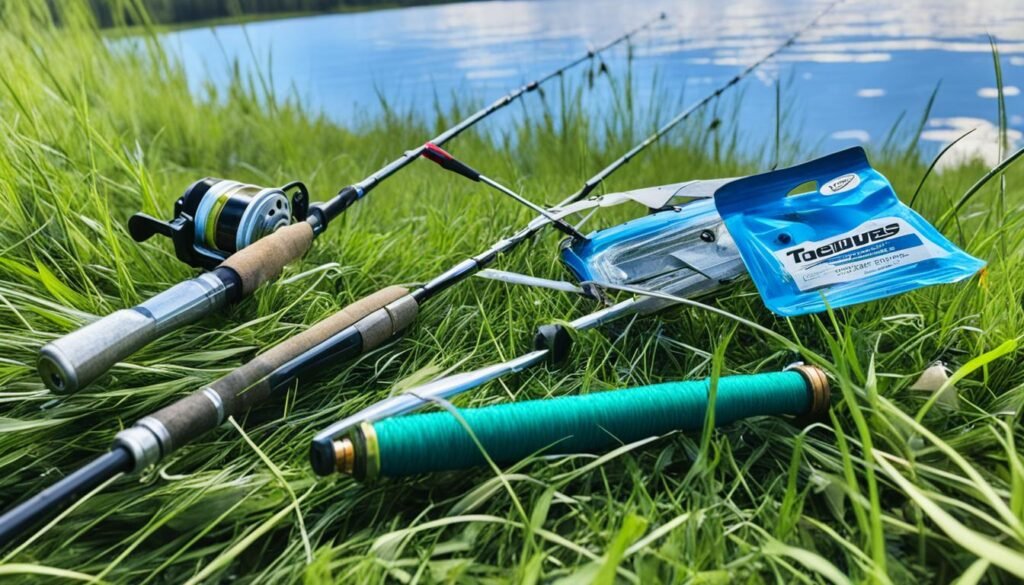
Building Trust and Restoring Integrity
Rebuilding trust and restoring the integrity of fishing tournaments requires a collective effort from tournament organizers, participants, and the fishing community as a whole. Enhanced regulations and enforcement can help deter potential cheaters and ensure a level playing field. Positive examples set by honest and ethical anglers can inspire others and reinforce the values of fair play and sportsmanship. By working together, the fishing community can create an environment that upholds the highest standards of integrity.
The Future of Competitive Fishing
Despite the occasional cheating incidents, the future of competitive fishing remains bright. Continued vigilance and adherence to ethical standards will play a crucial role in maintaining the integrity of the sport.
Fair play and sportsmanship should be promoted at all levels, from local tournaments to professional competitions. Anglers must embrace a mindset of fairness and respect for fellow competitors, ensuring that the spirit of fair play remains prevalent in every fishing event.
By learning from past mistakes and implementing preventive measures, the fishing community can ensure a vibrant and trustworthy future for competitive fishing. It is important to recognize that the actions of a few should not tarnish the reputation of the entire sport. The majority of anglers uphold ethical conduct and demonstrate exemplary sportsmanship.
“The future of competitive fishing relies on the commitment of each angler to uphold ethical standards and play by the rules. By doing so, we can create an environment where fairness prevails and the sport flourishes.”
Enhancing Ethical Standards
As the sport evolves, it is crucial to continually enhance ethical standards and emphasize the importance of fair play. Education plays a vital role in instilling these values in anglers, ensuring they understand the need to compete with integrity. By providing resources and educational programs, organizers can empower anglers to make ethical choices and report any suspicious activities they may encounter.
Advancements in Technology
Technological advancements can assist in maintaining fairness and integrity in competitive fishing. The use of advanced fishing gear and fish tracking devices can help monitor catch sizes and prevent fraudulent submissions. Enhanced surveillance during tournaments can also deter potential cheaters and ensure a level playing field for all participants.
Collaboration and Transparency
Collaboration between tournament organizers, anglers, and governing bodies is crucial in upholding ethical standards and fair play. Open dialogue and transparency can help address potential challenges and ensure that regulations are adapted to keep up with evolving fishing techniques. By foster a culture of transparency, the fishing community can maintain trust and confidence in tournament results.
Continued Vigilance
To combat cheating in fishing tournaments, continued vigilance is essential. Anglers, organizers, and spectators should remain vigilant to identify and report any suspicious activities that may compromise fair play. This collective effort will help maintain the integrity of the sport and promote an environment where only the most skilled and ethical anglers rise to the top.
| Benefits of Continued Vigilance | |
|---|---|
| Preserves Fair Competitions | Continued vigilance ensures that competitions remain fair, providing equal opportunities for all anglers to showcase their skills. |
| Protects the Reputation of the Sport | Vigilance against cheating incidents safeguards the reputation of competitive fishing, underscoring its integrity and professionalism. |
| Ensures Equal Recognition | By detecting and preventing cheating, continued vigilance ensures that accolades and recognition are earned genuinely, highlighting the true talent within the fishing community. |
Through the collective commitment to ethical standards and fair play, the future of competitive fishing will remain bright, inspiring generations of anglers to embrace the sport with integrity and passion.
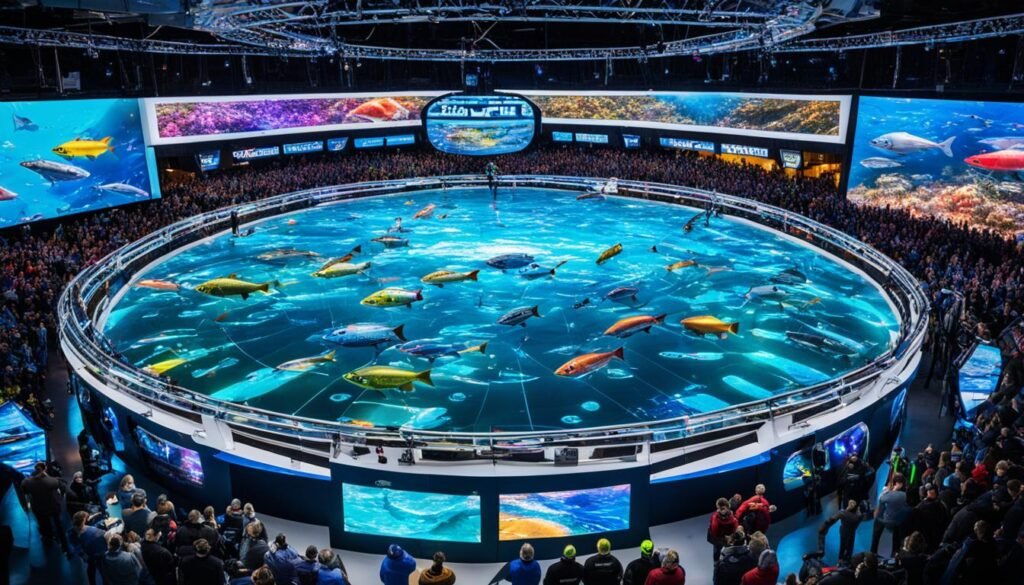
Conclusion
The recent pro angler cheating scandal on Lake Erie has brought the issue of cheating in fishing tournaments to the forefront. These incidents, while disheartening, serve as powerful reminders of the importance of upholding fair play, sportsmanship, and integrity within the sport.
By learning from past mistakes and implementing preventive measures, the fishing community can come together to maintain the reputation and integrity of fishing tournaments for future generations. It is crucial that anglers, organizers, and fans work in harmony to foster a culture that values honesty and transparency.
While the pursuit of victory can be intense, it should never come at the expense of the core principles that make competitive fishing a beloved and respected sport. Ensuring a level playing field and upholding ethical standards should be paramount concerns for all involved. Only by doing so can we continue to enjoy the thrill of the competition and the camaraderie that comes with it.
